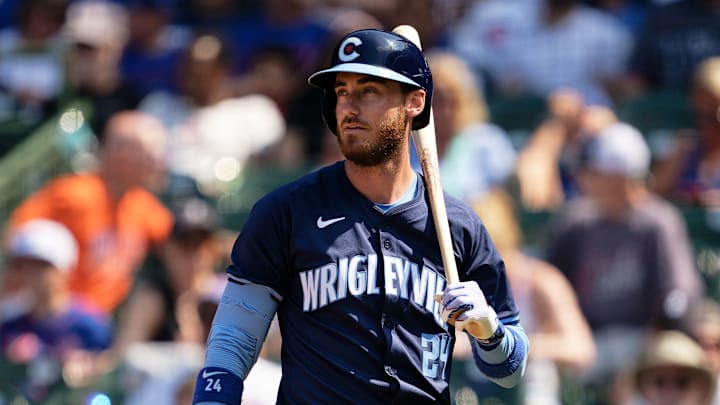During the offseason, Chicago Cubs fans kept counting the days until Jed Hoyer finally picked up the phone and re-signed Cody Bellinger to a three-year, $85 million contract. The center fielder was the hero of the 2023 team, bouncing back to his prime Dodgers form and helping the North Siders come within inches of their first non-pandemic playoff berth since 2018. It seemed that they needed him back in the fold to properly compete in the National League Central.
Cut to June 26, however, and the Cubs sit in dead last in the division having just blown their 17th save in gut-wrenching fashion followed by another agonizing offensive performance. Despite a woefully disappointing season, Cody Bellinger has continued to be a key cog for the team. Although he has regressed somewhat from 2023, he's hitting .272/.332/.436/115 wRC+ with a similar low strikeout rate while also remaining a versatile defender between first base and center. Ignoring his cold start to the year, his numbers get even better - .295/.339/.434/120 wRC+ from May 1 onward.
Assuming he remains at this pace, Bellinger has likely done enough to exercise the opt-out built into his contract and seek a longer deal before his age-29/30 season. He's proven that 2023 wasn't a fluke bounceback, but a demonstration that he can still be an above-average player. We've expressed how an opt-out would be the best-case scenario for the Cubs entering the season, but I'd argue it's even more crucial now that the team has fallen so flat.
As mentioned above, Bellinger has been solid, but he's fallen far short of the expectations that come with a $30 million salary. The team desperately needs a standout player who can add more power than what he's provided thus far and be an anchor to build around. That extra money would give them more wiggle room in 2025 to add that player or other impact pieces, whether that includes Juan Soto, Pete Alonso, or someone else entirely from the stacked upcoming free agent class. Those players alone would more than make up for his production, with Pete Crow-Armstrong and other prospects also helping make up the difference.
Cubs could have a lot of payroll flexibility if Bellinger opts out
Without Bellinger walking, the Cubs will already have a ton of money coming off the books between the expiring contracts of Kyle Hendricks ($16.5 million), Drew Smyly ($10.5 million), Trey Mancini ($7 million), Yan Gomes ($6 million) and more. That may not be enough to address the significant flaws across all facets of this roster though. From the dreadful catching (38 wRC+, 29th in baseball) to the aforementioned bullpen (4.47 ERA, 23rd) and lineup overall (95 wRC+, 19th) woes, this team needs a facelift that one star alone can't accomplish.
Losing Bellinger would sting, but this can't be another offseason of half-measures to try and vaguely remain in the race if everything goes right. The 2024 Cubs are a directionless team, and 2025 offers an opportunity to set that direction with a big signing while shoring up weaknesses. More money should mean a greater chance and ability to make those sweeping changes, even if the team continues to treat the luxury tax as a hard cap.
Cubs fans should root for Bellinger opting out, because this may be the best hope they have to right the ship without relying on prospects to save the day. Whether Hoyer should be the one to handle that extra money, however, is a topic for another time and place.
